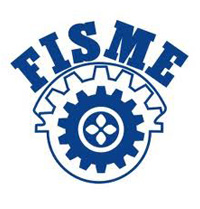 |
|
|
||||
BUDGET REACTIONS 2012-13
G R Kumar, CA, Vizag 1. THE move to cap the populist subsidies to under 2% of GDP during 2012-13 and eventually over next 3 year, to be further brought down to 1.75 per cent of GDP; is laudable. 2. For 2012-13, Rs.30,000 crore is proposed to be raised through disinvestment; and at least 51 per cent ownership and management control to remain with Government. However, earlier proposals fell short of targets. 3. The proposal to boost capital market by introducing “Rajiv Gandhi Equity Saving Scheme” to allow for income tax deduction of 50 per cent to new retail investors, who invest upto Rs.50,000 directly in equities and whose annual income is below Rs.10 lakh to be introduced. The scheme will have a lock-in period of 3 years. 4. Although brave statement has been made to introduce through consensus FDI in allow FDI in multi-brand retail upto 51% in multi-brand retail, the prospects look bleak considering the state of numbers within the present UPA Government. 5. The central KYC depository proposed is a welcome move to avoid multiplicity of registration and data upkeep. 6. Power sector would receive a boost with the fuel linkage agreements being signed with power plants and ECB funding. 7. Infrastructure, Housing and Civil aviation sectors have also little to cheer with increased targets, relaxation of ECB funding etc. DIRECT TAX PROPOSALS 8. The proposal to extend the sunset clause upto 31 Mar 2017 for In-house R&D expenditure – a move which would boost R&D and improve global competitiveness. 9. Turnover limit for compulsory tax audit of account and presumptive taxation of SMEs to be raised from Rs.60 lakhs to Rs.1 crore – a move which would help thousands of small businesses. 10. Exemption from Capital Gains tax on sale of residential property, if sale consideration is used for subscription in equity of a manufacturing SME for purchase of new plant and machinery. This too is welcome since this has a dual benefit – for the assessee as well as SME sector. NEGATIVE ASPECTS OF BUDGET 2012-13 DIRECT TAX PROPOSALS 1. Contrary to general expectations, the Income Tax slabs have not been relaxed to the desired extent and reliefs are marginal. The increase in basic exemption limit from Rs.1.80 lacs to Rs.2 lacs leaves much to be desired. 2. The proposal to extend the levy of Alternate Minimum Tax to all persons, other than companies, claiming profit linked deductions; will invite negative reaction from trade – since MAT now puts them at par with companies. |
||
 |
FISME Union Budget 2012-13: A mixed bag for MSMEs ‘Extending MAT Coverage on Proprietorship & Partnership firms to adversely affect 97% of MSMEs’ The Micro, Small and Medium Enterprise sector has termed the Budget 2012-13 as a mixed bag. While raising the turnover limit for compulsory audit from Rs. 60 ac to one crore has been widely welcomed, the extension of Minimum Alternative Tax (MAT ) on proprietorship and partnerships firms is being termed as troublesome. "With 97% of MSME being proprietorship and partnership firms, extension of MAT on MSMEs will make capital formation and subsequent raising of funds even more difficult for them" according to V.K. Agarwal, President of Federation of Indian Micro and Small & Medium Enterprises (FISME). ‘The Finance Minister stopped at highlighting the importance of manufacturing and taking but only a few ad-hoc measures to demonstrate a his willingness in following-through the promise. The Budget just made passing remarks on the GST, National Manufacturing Zones, SME Exchange, 20% mandatory procurement from MSEs in public procurement etc. According to FISME, he needed to take a strategic view by having a investment friendly import duty structure, especially after prolonged and substantive discussions in Planning Commission with stake holders on impulsing manufacturing’, President FISME said. On the access to equity funds by MSMEs, FISME welcomed exempting capital gains tax on sale of a residential property if the sale consideration is used for subscription in equity of a manufacturing SME company for purchase of new plant and machinery and creation of Rs. 5000 crore fund for equity support . The decision to extend the weighted deduction of 200 per cent for R&D expenditure in an in-house facility beyond March 31, 2012 for a further period of five years was well received too. FISME also welcomed higher duty protection given to cycle and cycle parts manufacturers reeling under onslaught of cheap imports and noted that many labour intensive sectors need support through strategic use of import duties and NTBs. Similarly, reduction in duties for inputs of industries such as Paper, Medical devices etc would also prove beneficial. FISME particularly lauded the decision to use technological platform for disbursement of subsidies as large scale leakage has been reported in their delivery process. |
|
 |
The Federation OF Andhra Pradesh Chambers Of Commerce and Industry Today’s budget presented by Sri Pranab Mukherjee, Finance Minister falls short of expectations from the Industry and common man. Industry expected a major push to the growth and stimulus to the investment. Though measures like Rs. 60,000 crores tax free bonds for infrastructure is a good measure but these bonds have to be subscribed by the banks, corporate and retail investors. Already corporate taxes this year have come down in view of lower profits. It is uncertain that in 2012-13 more funds would be available to subscribe to the Bonds. Similar is the case with the retail investors as they have not got income tax benefit by increasing income tax exemption threshold limits. The ECB route is a welcome move. This will provide funds for investments. But if there is increase in ECB, there is a danger of rupee value coming down which will further put pressure on economy. As far as power sector is concerned, exemption of import duty on import of coal will in short term provide relief to the power sector. But in long term increased power generation and power distribution requires measures which were not provided for in the budget. Other situation which is bothering the power sector is transmission and distribution, which should have been given more filip and exemptions for investments. Increasing investments in capital assets for transmission and distribution is the urgent need of the hour. The Southern grid is suffering from corridor constraints. A good boost is given to textile industry. Some import concessions have been given to fertilizer industry. To help aviation industry ECB investments facility is given. To make India a hub for aircraft Maintenance, Repair and Overhauling (MRO) the Finance Minister has given several import duty concessions and ECB funding. As far as taming inflation in the coming year is concerned, there are concerns as the increase in the Excise Duty and Service tax by 2 percent points will trigger inflation combined with the inflation coming from the oil imports. Further, the market borrowings of Rs. 4.79 lakh crores by the government would crowd the market and availability of funds for private investment will be less. There are welcome features like limiting subsidies to 2% and to 1.75% in future. It is a good measure to control subsidies. For retails investors, investment in equity likes Rajiv Gandhi Equity Scheme and reduction of STT by 20% and allowing E.C.B. is a good step for capital markets. Overall this budget is not a growth-oriented budget to the extent expected by the Industry. |